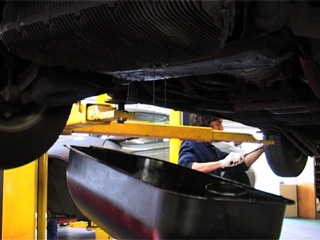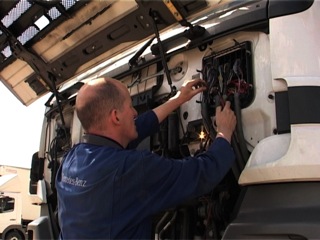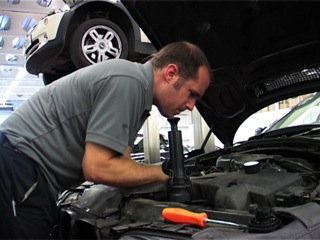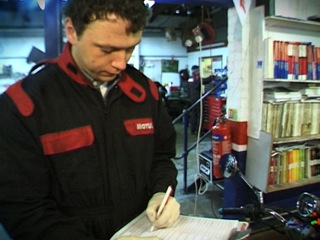Motorsport Technicians are responsible for supervising the installation of new electrical accessories to vehicles and the repairing of electrical faults. Duties may vary from employer to employer but they will commonly include:
- Helping other team members with day to day challenges and providing support in more challenging situations
- Testing systems for faults
- Diagnosing more complex electrical faults with vehicles using specialist equipment
- Deciding on the best method of repair & carrying it this work
- Testing repairs and new systems
- Advising customers on different equipment available
As a diagnostic electrical technician you will need to express:
- The ability to lead others and provide support them when needed
- Good practical and problem solving skills
- The ability to keep up to date with developments in electrical technologies
- The ability to work on your own initiate as well as art of a team
- Strong communication skills
- The ability to read electrical wiring diagrams
Motorsport technicians specialise in vehicle electronics and electrical equipment and so need to be trained in vehicle maintenance a repair, auto electrics at level 3 in order to carry out this role.
To view links to employers who may offer this type of work, please click here.
Qualifications
IMI Awards
Level 3 Diploma in Motorsport Vehicle Maintenance and Repair (QCF)
EdExcel
BTEC Level 3 Diploma in Auto Electrical and Mobile Electrical Principles (QCF)
Please note: These figures are meant as a guide only and may vary from employer to employer and may be dependent on the geographical area.
Motorcycle technicians normally work 40 hours per week between Monday to Friday. You would be based in a garage or workshop and may be out on the road if needed.
Salary:
- Experienced electricians may expect between £17500-£21000
- Senior electricians can expect up to £25000
Motorsport technicians would normally progress into this after experience as an auto electrician;
It may also be possible to train at this level via an advanced apprentice/traineeship in vehicle maintenance and repair, auto electrics. To do this you will need to have completed your training at level 2. For further information on apprentice/traineeships in England please visit www.apprenticeships.org.uk, for Wales please visit www.careerswales.com for Northern Ireland please visit www.careersserviceni.com and for Scotland please visit www.skillsdevelopmentscotland.co.uk/training
Apprenticeships
Vehicle Maintenance and Repair (Advanced - Auto Electrical Diagnostic Technician) As an apprentice, you could work for a dealership and focus on a particular manufacturer, or work for an independent garage that deals with many different makes of vehicles. In both, you’ll choose your area of specialisation, whether that’s motorcycles, cars, heavy vehicles or vehicle electrical systems. You’ll be working in a service technician type role, carrying out routine maintenance and basic repairs, as well as identifying and reporting faults.
On the Advanced Level Apprenticeship, you’ll learn about more complex faults and how to identify and repair them using sophisticated diagnostic equipment.





















